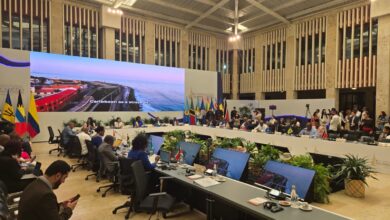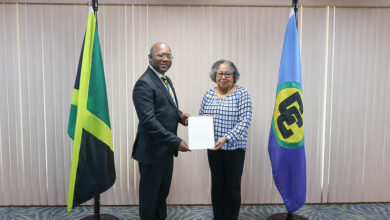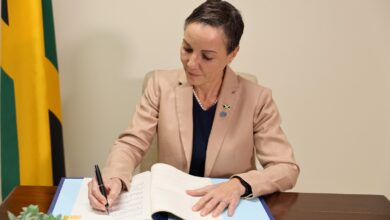Bridgetown, Barbados, March 2, 2015 (CDEMA) – The Caribbean Disaster Emergency Management Agency (CDEMA) in association with the Office of Disaster Preparedness and Emergency Management (ODPEM), Jamaica and with the support of the Governments of Chile and Spain under the Chilespana triangular cooperation, will host a Regional Seismic and Tsunami Risk Workshop from March 3rd -4th, 2015 at ODPEM''s Office in Kingston, Jamaica.
This is the final activity of the “Strengthening of the Caribbean Disaster Emergency Management Agency (CDEMA) in the Technical Areas of Earthquakes and Tsunamis” Project. This initiative has been directed at strengthening the knowledge and preparedness of the Caribbean region in the technical area of tsunami and earthquake readiness and emergency prevention. Specifically, the project has focused on inundation mapping; tsunami and earthquake drills and state of-the-art approaches in seismic technology and investigation.
Attending the workshop will be disaster management practitioners, scientists and researchers from select national disaster offices, the University of the West Indies (the Earthquake Unit, Mona, the Seismic Research Centre, St Augustine and the Centre for Resource Management and Environmental Studies, Cave Hill), the Caribbean Institute for Meteorology and Hydrology (CIMH), the Caribbean Center for Tsunami Information (CTIC), CDEMA CU and the Chilespana team.
Participants at the workshop will discuss the risk associated with earthquakes and tsunamis and the specific actions being taken to address this at the regional and national level in the CDEMA Participating States. The project results will also be discussed, recommendations presented for improvements and next steps to further enhance readiness for earthquake and tsunamis and to promote knowledge and awareness of resilience issues.
Specifically, the participants will review the standards that have been developed for tsunami inundation modelling and earthquake and tsunami drills. These standards were applied in the Old Harbour Bay area in Jamaica which was selected as the project pilot. Recommendations from the workshop will contribute to the refining of these standards which will be shared with all 18 CDEMA States. Another key expectation of the workshop will be the comments offered to enhance the curriculum on earthquake and tsunami for the UWI Masters Programme in Disaster Risk Reduction.
The Chilespana project has been implemented over the period July 2014 to February 2015. Activities also included, Field visit to Chile for a Training-of-Trainers Orientation Workshop on Tsunami Inundation Maps, Hazard Assessment Training Course, Observation of Earthquake-Tsunami Evacuation Drill in Concepcion, Chile and a Vulnerability and Risk Assessment Training Course.





